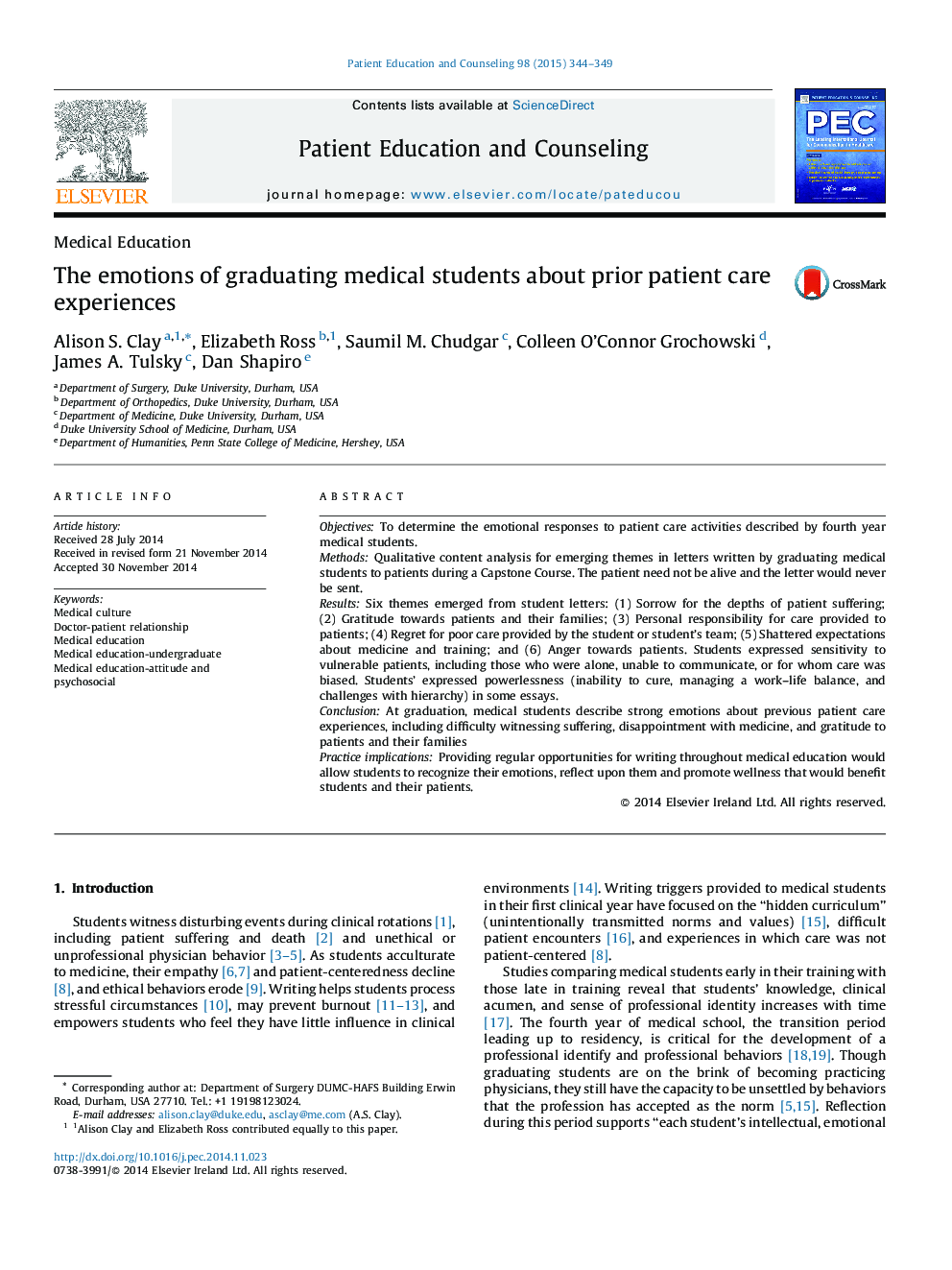| Article ID | Journal | Published Year | Pages | File Type |
|---|---|---|---|---|
| 6153665 | Patient Education and Counseling | 2015 | 6 Pages |
â¢Graduating medical students express a range of emotions in written reflections.â¢Emotions towards patients include gratitude and sorrow for their suffering.â¢Disappointment centers on inability to cure, work-life balance, and hierarchy.â¢Students' ability to cope mirror skills of self-efficacy for patients.â¢More reflective writing and focus on wellness may ultimately improve patient care.
ObjectivesTo determine the emotional responses to patient care activities described by fourth year medical students.MethodsQualitative content analysis for emerging themes in letters written by graduating medical students to patients during a Capstone Course. The patient need not be alive and the letter would never be sent.ResultsSix themes emerged from student letters: (1) Sorrow for the depths of patient suffering; (2) Gratitude towards patients and their families; (3) Personal responsibility for care provided to patients; (4) Regret for poor care provided by the student or student's team; (5) Shattered expectations about medicine and training; and (6) Anger towards patients. Students expressed sensitivity to vulnerable patients, including those who were alone, unable to communicate, or for whom care was biased. Students' expressed powerlessness (inability to cure, managing a work-life balance, and challenges with hierarchy) in some essays.ConclusionAt graduation, medical students describe strong emotions about previous patient care experiences, including difficulty witnessing suffering, disappointment with medicine, and gratitude to patients and their familiesPractice implicationsProviding regular opportunities for writing throughout medical education would allow students to recognize their emotions, reflect upon them and promote wellness that would benefit students and their patients.
